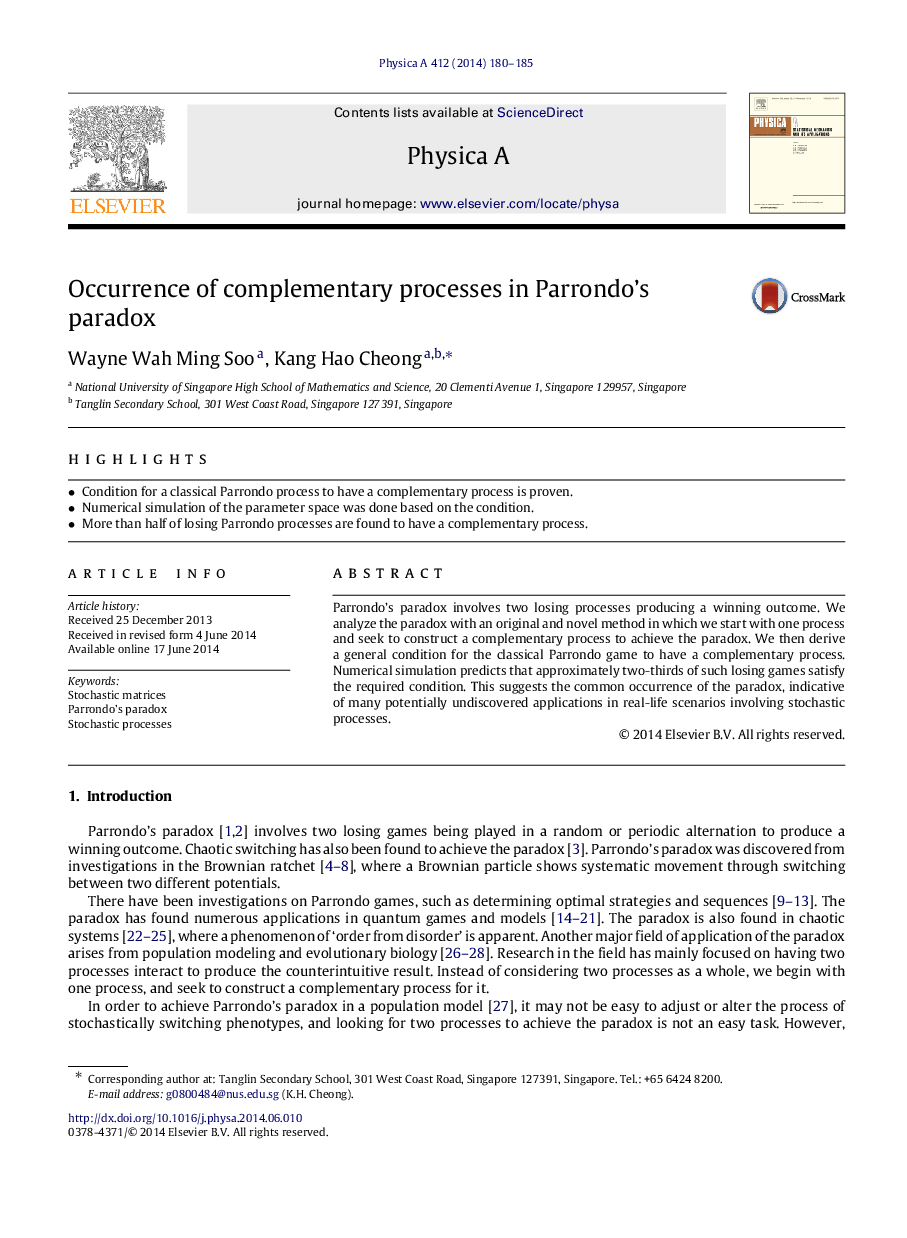| Article ID | Journal | Published Year | Pages | File Type |
|---|---|---|---|---|
| 7380263 | Physica A: Statistical Mechanics and its Applications | 2014 | 6 Pages |
Abstract
Parrondo's paradox involves two losing processes producing a winning outcome. We analyze the paradox with an original and novel method in which we start with one process and seek to construct a complementary process to achieve the paradox. We then derive a general condition for the classical Parrondo game to have a complementary process. Numerical simulation predicts that approximately two-thirds of such losing games satisfy the required condition. This suggests the common occurrence of the paradox, indicative of many potentially undiscovered applications in real-life scenarios involving stochastic processes.
Related Topics
Physical Sciences and Engineering
Mathematics
Mathematical Physics
Authors
Wayne Wah Ming Soo, Kang Hao Cheong,
